How to solve sudoku?
This article is an introduction to the series of articles about methods of solving sudoku puzzles. Probably everyone who has solved at least the easiest sudoku was following their rules. Or made up an algorithm during the game, which helped to fill in a particular cell. We will try to tell you about our methods, even though you probably already know about them or made them up by yourself while solving numerous sudoku.
In the first articles the simplest methods will be described so that the newcomers will gradually learn them and try to solve sudoku online with the help of these methods. Articles about more complex methods will follow.
To make our articles totally understandable, we provide you with sudoku terminology.
Terminology
Playing field – a numerical square comprising cells 9x9. A playing field has nine squares, nine lines and nine columns.
Cell – the basic element of sudoku field. A cell must contain one number or letter. Which one – depends on the groups it belongs to.
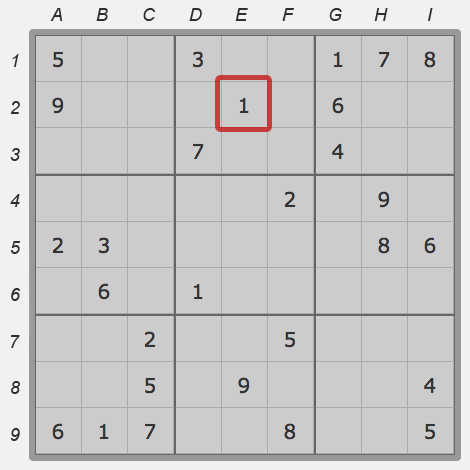
Line – a horizontal set of 9 cells.
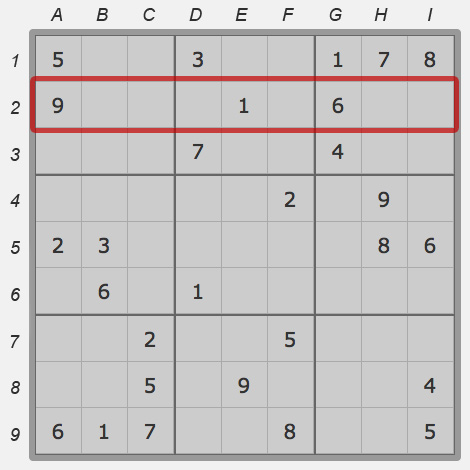
Column – a vertical set of 9 cells.
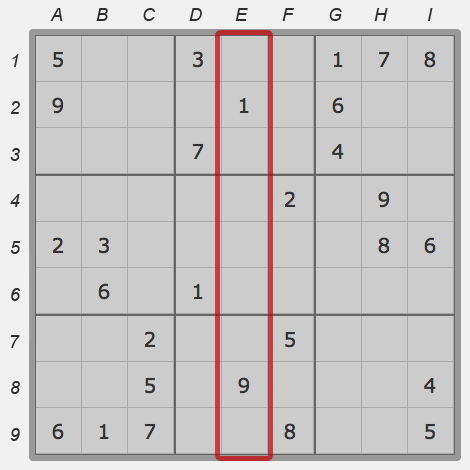
Square – a set of cells of the size 3x3. The whole sudoku comprises 9 such squares.
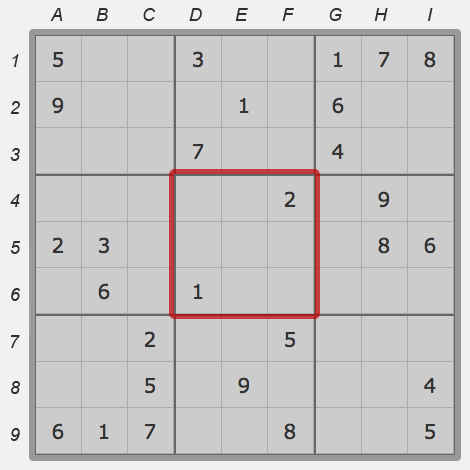
Segment – vertical or horizontal set of 3 cells in a group. Therefore, a square contains 6 segments. A line and a column have three each.
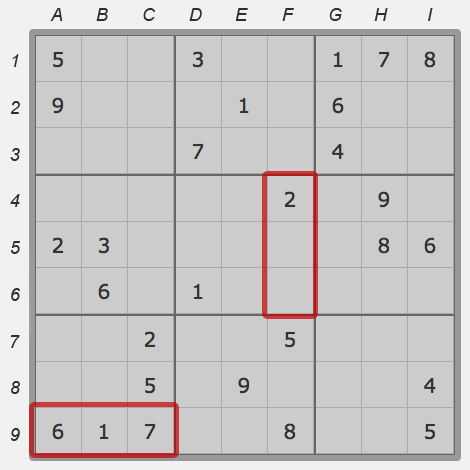
Candidate – a number or a letter which can suit to a particular cell. It is considered that if there’s only one candidate, than this value will be in this cell. Two candidates in a cell are called a pair. Three candidates are called a trio. And so on.
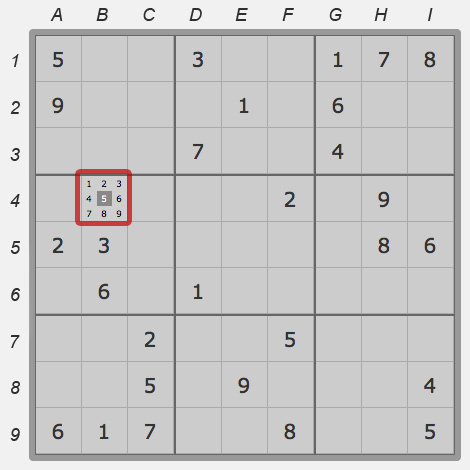
G:3 – second line and third column. This is how we will indicate the position of a cell on sudoku field. For example, “Since B:5 already contains number three, then…”.
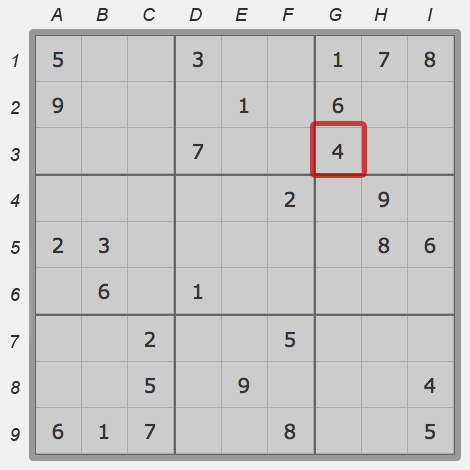
About algorithms of sudoku solving
No official rules for solving sudoku exist. That’s why I will be describing my own or adopted algorithms which will help you solve puzzles of various difficulty.
The next article will explain the simplest method of searching a candidate. This method is called “Singleton”.